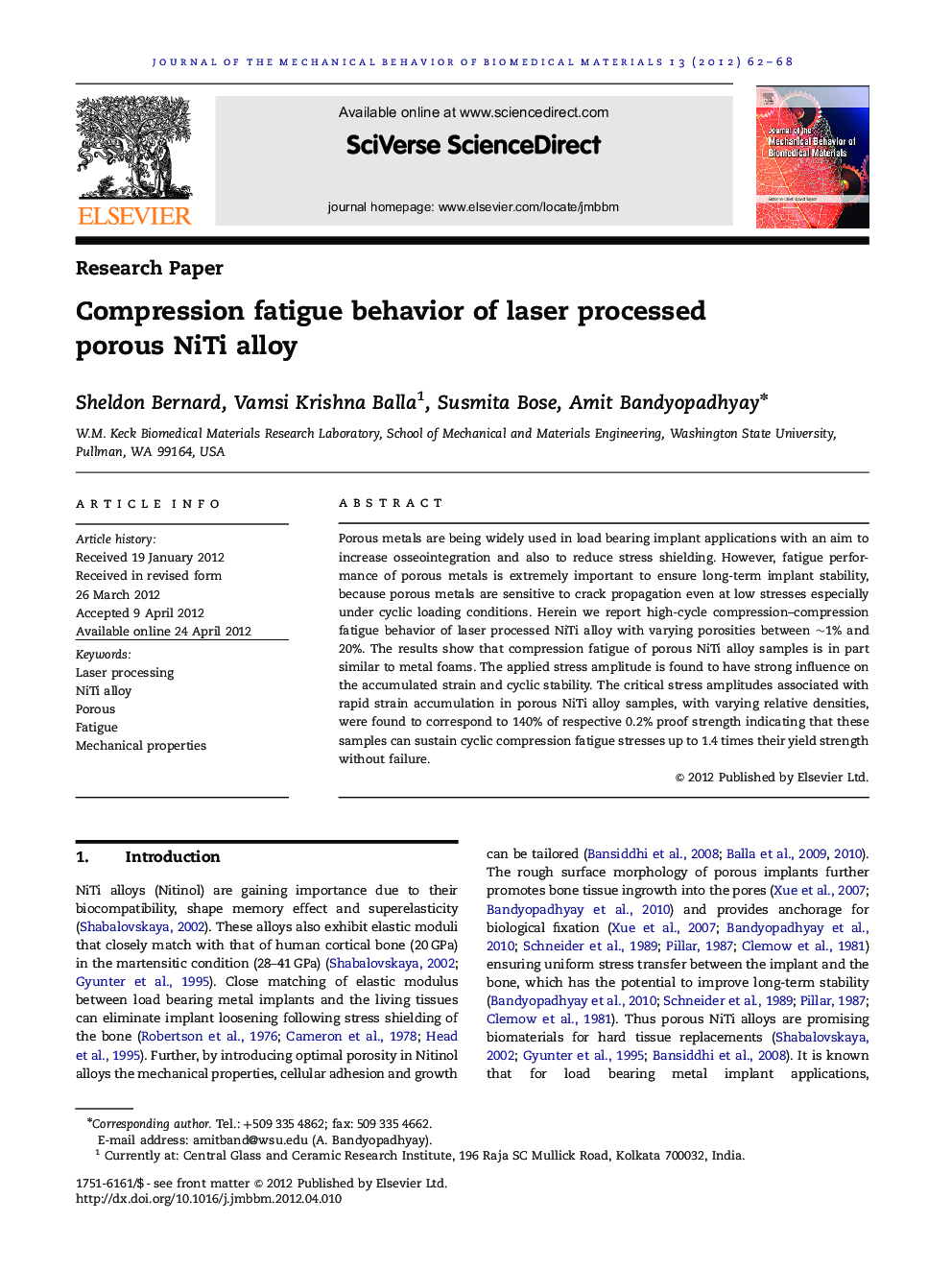| Article ID | Journal | Published Year | Pages | File Type |
|---|---|---|---|---|
| 811070 | Journal of the Mechanical Behavior of Biomedical Materials | 2012 | 7 Pages |
Porous metals are being widely used in load bearing implant applications with an aim to increase osseointegration and also to reduce stress shielding. However, fatigue performance of porous metals is extremely important to ensure long-term implant stability, because porous metals are sensitive to crack propagation even at low stresses especially under cyclic loading conditions. Herein we report high-cycle compression–compression fatigue behavior of laser processed NiTi alloy with varying porosities between ∼1% and 20%. The results show that compression fatigue of porous NiTi alloy samples is in part similar to metal foams. The applied stress amplitude is found to have strong influence on the accumulated strain and cyclic stability. The critical stress amplitudes associated with rapid strain accumulation in porous NiTi alloy samples, with varying relative densities, were found to correspond to 140% of respective 0.2% proof strength indicating that these samples can sustain cyclic compression fatigue stresses up to 1.4 times their yield strength without failure.
Graphical abstractFigure optionsDownload full-size imageDownload high-quality image (158 K)Download as PowerPoint slideHighlights► Compression fatigue tests were performed on 0–20% porous NiTi alloy. ► Compression fatigue of porous NiTi samples was in part similar to metal foams. ► Stress amplitude strongly influenced the accumulated strain and cyclic stability. ► Porous NiTi samples were stable at stress amplitudes 1.4 times their yield strength.
